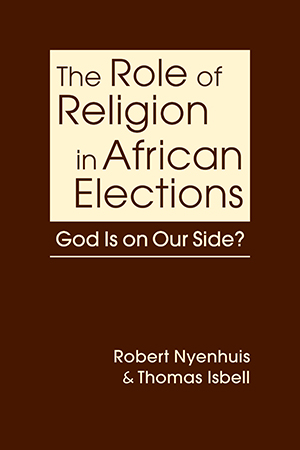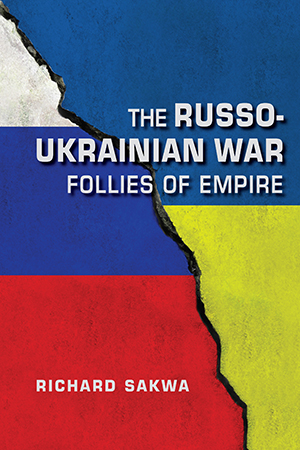BOOKS
The Rise of China's Industrial Policy, 1978 to 2020Barry Naughton Can China's remarkable, rapid emergence as a large economy and technological power be attributed to specific policies, and more generally to a Chinese program of industrial policy? More simply put: What is it that China has done right? This is the fundamental question that Barry Naughton addresses in his extended essay. Disentangling the threads of China's industrial policies since More > |  |
The Role of Religion in African Elections: God Is on Our Side?Robert Nyenhuis and Thomas Isbell Does religion play a significant role in voting behavior in sub-Saharan Africa? The perception has long been that religious identity has little impact on electoral decisionmaking, with many countries across the continent formally banning political parties from organizing along religion lines or making explicitly religious campaign appeals. But is that in fact the case in today's More > |  |
The Roots of Haitian DespotismRobert Fatton Jr. Though founded in the wake of a revolution that embodied its slave population's quest for freedom and equality, Haiti has endured a history marked by an unending pattern of repressive dictatorial regimes. Exploring that history, Robert Fatton offers a rigorous explanation of how and why the legacy of colonialism, the struggle against slavery, and the intersection of the domestic and world More > |  |
The Roots of Somali Political CultureM.J. Fox The fragmentation of the former Somali Democratic Republic into three distinctive entities, together with the events that have ensued since then, make for a complex political puzzle that raises a plethora of questions. M.J. Fox explores some of the most fundamental of those questions: Have the "three Somalias" of today always been as disparate as they are now? How deeply rooted are More > |  |
The Royal Game and Other StoriesStefan Zweig translated from the German by Jill Sutcliffe and with an introduction by Jeffrey B. Berlin Stefan Zweig gained early fame as a poet, translator, and biographer. When he added fiction to his repertoire, he won even more critical acclaim. After his death, however, his work fell inexplicably into obscurity. The Royal Game and Other Stories is a collection of five of Stefan Zweig's brilliant and creative psychological thrillers. Filled with emotional extreme—from obsessive love More > |  |
The Russian Syndrome: One Thousand Years of Political MurderHélène Carrère d'Encausse, translated by Caroline B. Higgitt and with a forword by Adam B. Ulam |  |
The Russians Aren't Coming: New Soviet Policy in Latin AmericaWayne S. Smith, editor Pointing to the dramatic changes in the former Soviet Union and its foreign policies over the past few years, the authors demonstrate that, even before the consequent collapse of communism in the Soviet Union, the fear of Soviet penetration in Latin America, which had driven US policy in the region during the Cold War, had been rendered groundless. They argue that it is high time for the United More > |  |
The Russo-Ukrainian War: Follies of EmpireRichard Sakwa The number of casualties in the ongoing Russo-Ukrainian war is rapidly approaching 1.5 million, with no resolution in sight … a staggering reality. Seeking to make what sense is possible of this catastrophic conflict, Richard Sakwa meticulously explores the origins, course, and consequences of the war in the sweeping context of global and domestic politics since 1945. Sakwa's More > |  |
The Sanctions Decade: Assessing UN Strategies in the 1990sDavid Cortright and George A. Lopez Choice Outstanding Academic Book! Since the end of the Cold War, economic sanctions have been a frequent instrument of United Nations authority, imposed by the Security Council against nearly a dozen targets. Some efforts appear to have been successful, others are more doubtful—all, though, have been controversial. This book, based on more than two hundred interviews with officials from More > |  |
The Sandinistas and Nicaragua Since 1979David Close, Salvador Martí i Puig, and Shelley A. McConnell, editors How has the Sandinista National Liberation Front (FSLN) affected Nicaragua and its politics since the Sandinista revolution of 1979? Addressing this question, the authors offer a comprehensive assessment, discussing the country's political institutions and public policy, its political culture, and its leadership, as well as the FSLN as a political party. Their focus is on contemporary issues, More > |  |







